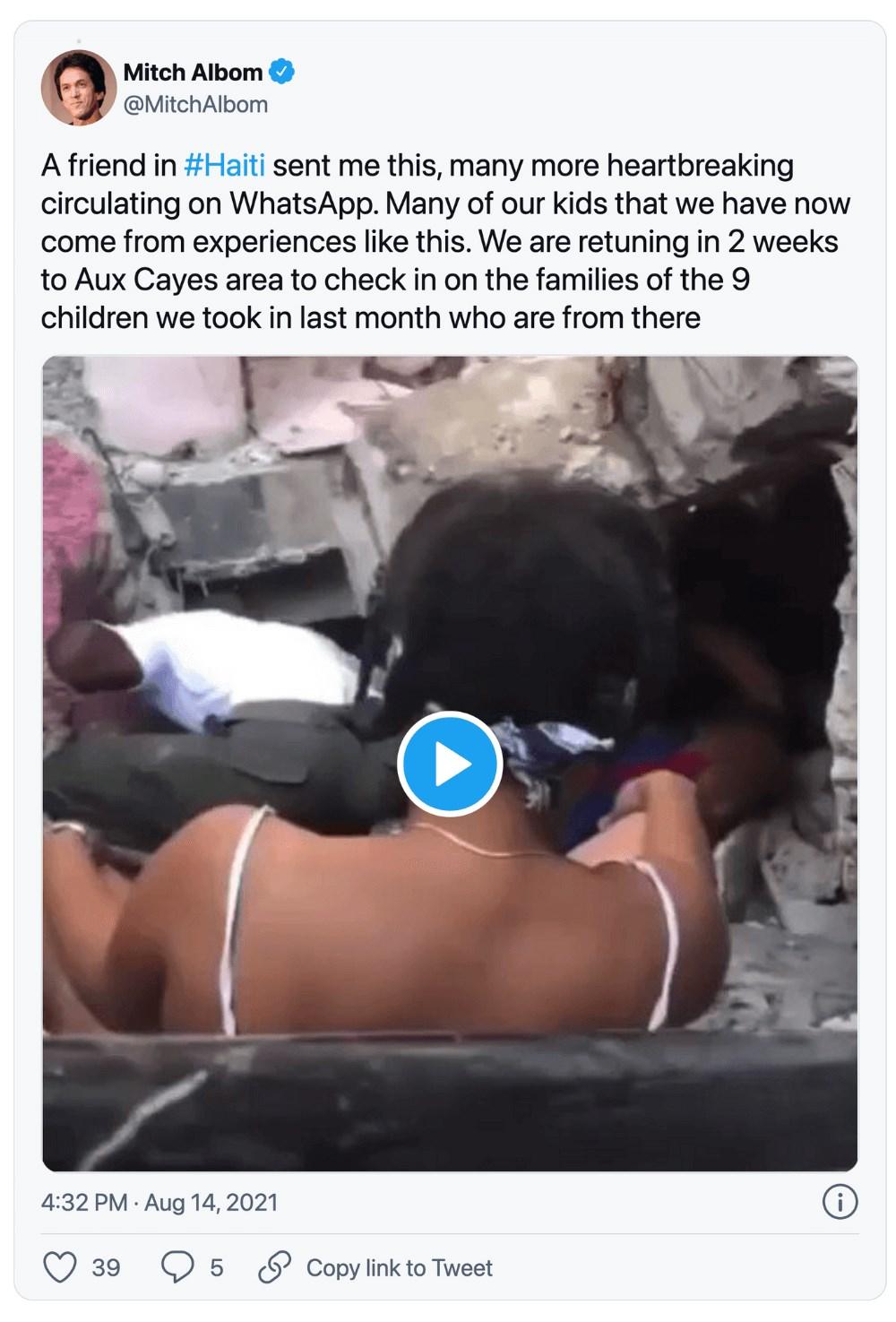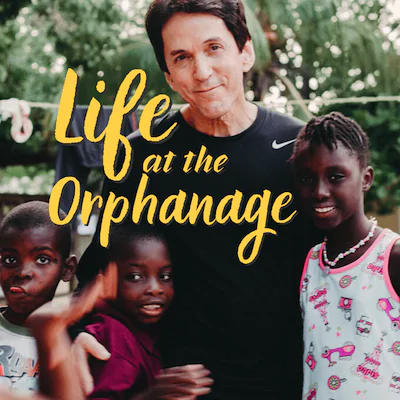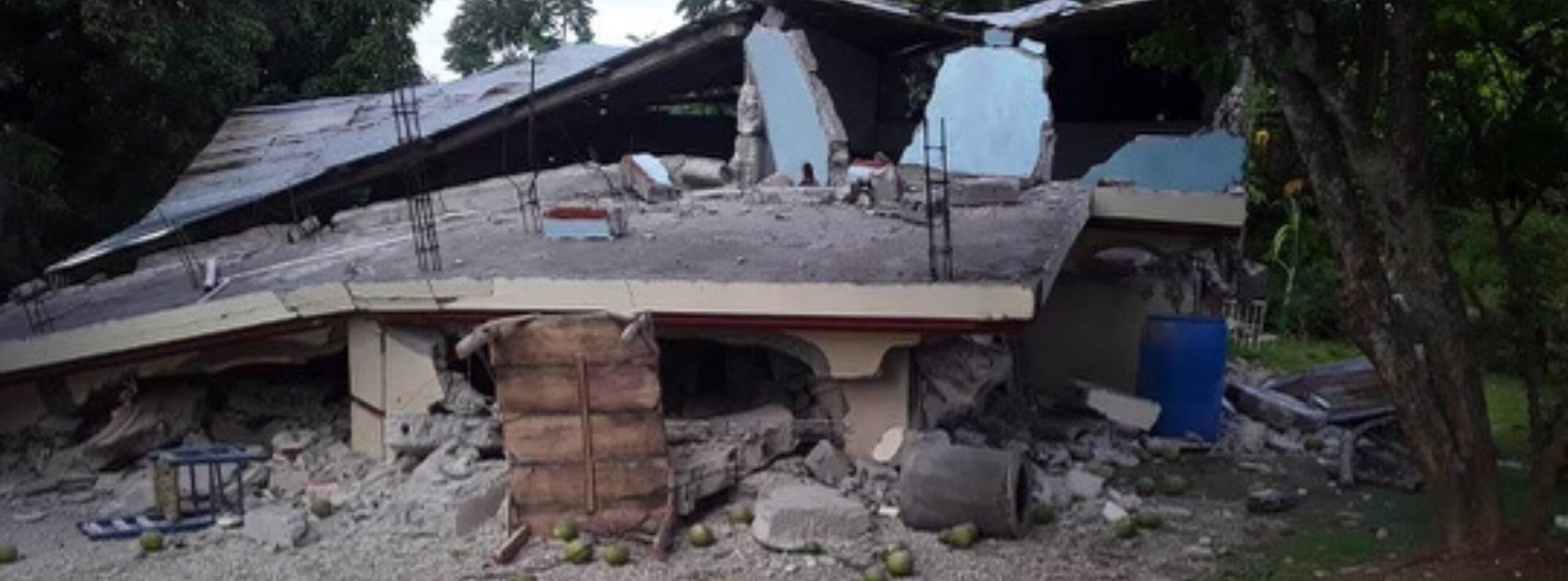👋 and welcome to “Life at the Orphanage,” a newsletter about life for the 50+ children of Have Faith Haiti.
Emmanuel had been through it before. The earth shakes. The buildings rock. You hear screaming from the streets. You see children running.
“The ground just starts moving,” he says. The last time this happened, he was 12 years old, reading a notebook in the yard at the orphanage. He heard a loud noise. The ground began to sway. He dropped the notebook and started running like the other kids. He ran through the kitchen, saw the propane tanks fall over, ran back out, grabbed onto a post and squeezed it as if it were a ship rail in stormy waters.
“Back then, I didn’t even know what it was,” he says of the 2010 earthquake.
This time, eleven years later, he knew what it was. He was in the same place as before, the yard of the orphanage, when the ground started rumbling. Again, the children began to race in circles. Again, he saw their terrified faces.
“It’s an earthquake,” he tried to tell them.
It’s an earthquake. Another earthquake. In a country that just saw its president assassinated and its streets terrorized by gangs, a country on the cusp of a tropical storm that could bring flooding everywhere — and suddenly, it’s an earthquake. Another earthquake?
Honestly. It’s enough to make you shake your head. If the ground hadn’t been shaking already.
 |
Frantic calls
Siem had been inside the dormitory back in 2010. He grabbed his bed and held on for what seemed like minutes. Then he raced outside. The air was thick with white smoke. People screamed. Some would die in the streets. It took months before anyone trusted going indoors again.
This time, Siem was at an airport, coming back to Detroit from Haiti for his sophomore year of college. He got a text.
“There’s been an earthquake. In Aux Cayes.”
That was his hometown. He frantically dialed a friend, who answered the phone and told him, “Your mama’s house is destroyed. Your aunt is dead. Her son is dead. Your brother is hurt—”
And then the phone died.
“I couldn’t reach anybody for three hours,” Siem says. “I didn’t know who was alive and who wasn’t.”
Siem’s family lives in the heart of the earthquake’s path, Aux Cayes, which sustained major damage and saw hundreds dead and thousands wounded. Some of his family had been at a funeral service when the ground rumbled and the church collapsed. Those who came to bury a loved one were buried themselves.
“They say 30 peopled died in that.”
Siem’s eyes moisten. You can tell he is a young man out of time, here in the safety of an American college year, but emotionally in the center of a hometown that has just been crushed.
“I have to go back,” he says.
Although his college classes begin in two weeks, he is returning home Saturday. He can’t be here, with all this safety, when his mother, who has been too traumatized to speak to anyone, sits by herself, wailing in the streets, under threatening Haitian skies.
Americans sometimes get worn out by Haiti’s problems.
Imagine how the Haitians feel.
Whenever there is another setback, there comes an inevitable chorus of “That poor country, it never gets a break.” But part of why it never gets a break is because it’s such a poor country. California suffers earthquakes. But with rare exceptions, they are absorbed by structures and roads built to withstand them. The southeast gets tropical storms. But with rare exception, good planning and strong building keep the damage within reason.
Streets are dangerous in America, but, with rare exception, a police force is expected to respond and a justice system expected to investigate. Political fights are commonplace in the U.S. But with rare exception, they do not end in bloodshed between legislators.
Money makes the difference in every case. And Haiti doesn’t have money. Not for preparation. Nor for protection. Not for relief.
So Siem’s mother is living in the streets, and others victimized in Aux Cayes are huddled in an outdoor soccer pitch. The roads to that area are infested with gangs, who may or may not let relief convoys past. There is no FEMA. There is no AllState representative. There is no abundance of hospitals or clinics or hotels.
What feels safe?
At the orphanage, the children have returned to sleeping inside. There were small aftershocks that came Saturday night, and our nannies, who remember the last earthquake, did not want to go back into the dormitory. I can’t blame them. The building, which we inherited, is not earthquake proof, and last time it developed a huge crack in its ceiling and wall that needed to be buttressed with a giant beam. Even so, I don’t trust it.
The school building, which we constructed after I took over operations, was built with more support, rebar all the way through. Plus, it is only one story. The nannies took the kids and made them all sleep inside the classrooms. They felt safer. Why shouldn’t they?
It’s another reason I yearn to move. Find a new place. A more stable home. Until then, I worry about every natural disaster. Every storm. Every rumble of the earth — in a nation where rumbling is omnipresent, political rumblings, violence rumblings, the rumblings of a hungry child’s stomach.
And now, once again, the rumblings of an earthquake. Another earthquake. As Siem prepares to fly to the rubble of his mother’s home, as we prepare to fly back to Aux Cayes to see if our new kids’ families are still alive, as our children eyeball every building nervously before they enter, we take a sigh, then take the next step. It is all you can do in a land that makes you feel like you are forever walking uphill.
***
 |
The scholarship program is hosting a fundraiser on August 19 at Madonna University. Info and tickets are available here. Please spread the word!



 Join a community of monthly donors
Join a community of monthly donors
0 Comments